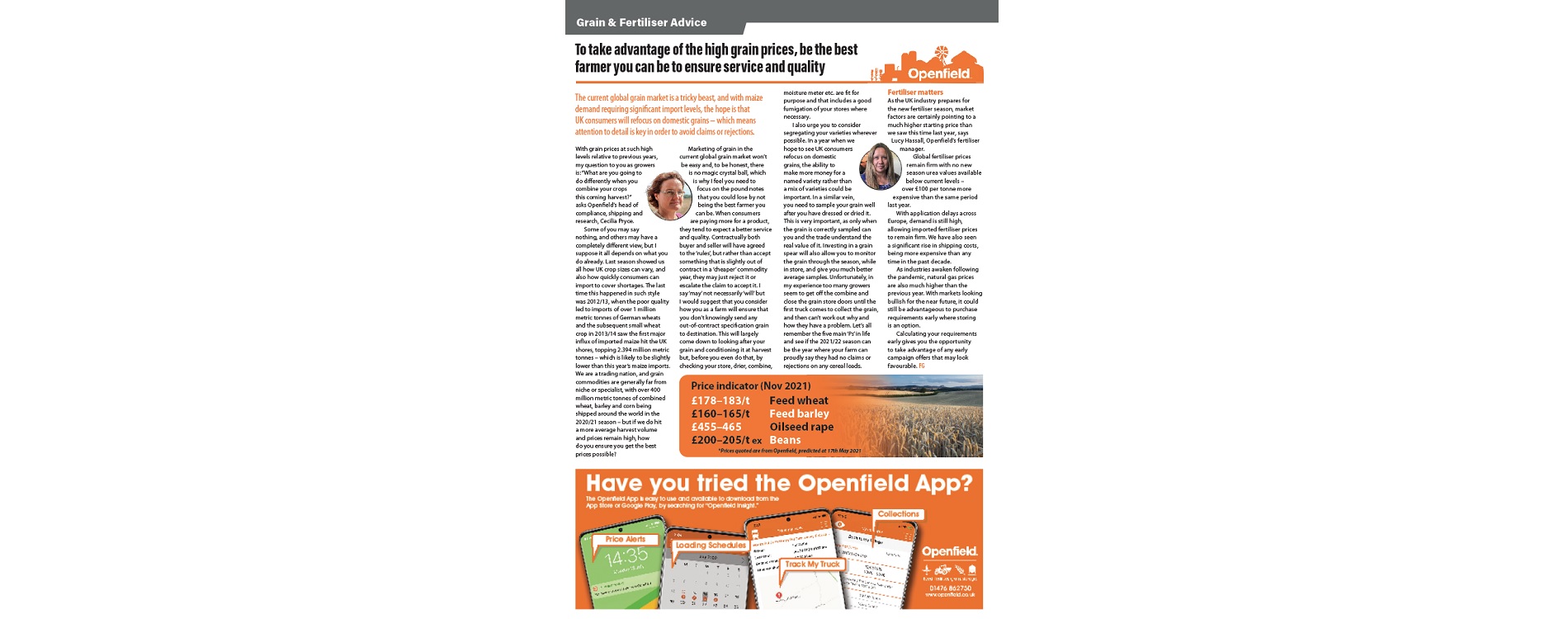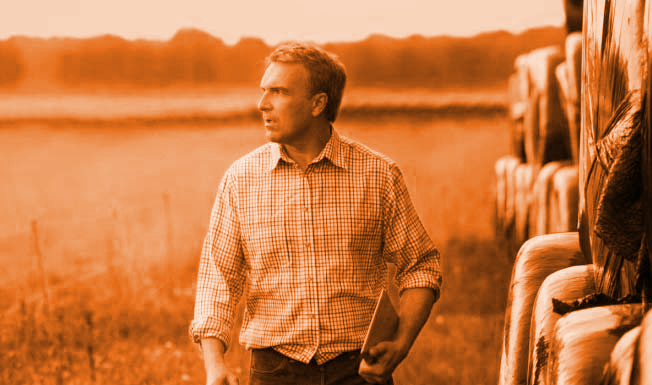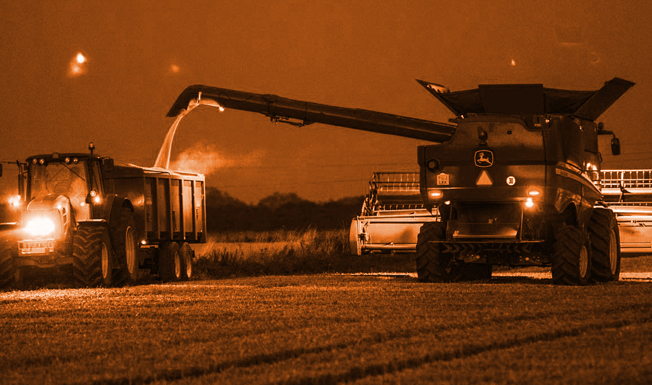To take advantage of the high grain prices, be the best farmer you can be to ensure service and quality
The current global grain market is a tricky beast, and with maize demand requiring significant import levels, the hope is that UK consumers will refocus on domestic grains – which means attention to detail is key in order to avoid claims or rejections.
With grain prices at such high levels relative to previous years, my question to you as growers is: “What are you going to do differently when you combine your crops this coming harvest?” asks Openfield’s head of compliance, shipping and research, Cecilia Pryce. Some of you may say nothing, and others may have a completely different view, but I suppose it all depends on what you do already. Last season showed us all how UK crop sizes can vary, and also how quickly consumers can import to cover shortages. The last time this happened in such style was 2012/13, when the poor quality led to imports of over 1 million metric tonnes of German wheats and the subsequent small wheat crop in 2013/14 saw the first major influx of imported maize hit the UK shores, topping 2.394 million metric tonnes – which is likely to be slightly lower than this year’s maize imports.
We are a trading nation, and grain commodities are generally far from niche or specialist, with over 400 million metric tonnes of combined wheat, barley and corn being shipped around the world in the 2020/21 season – but if we do hit a more average harvest volume and prices remain high, how do you ensure you get the best prices possible? Marketing of grain in the current global grain market won’t be easy and, to be honest, there is no magic crystal ball, which is why I feel you need to focus on the pound notes that you could lose by not being the best farmer you can be. When consumers are paying more for a product, they tend to expect a better service and quality. Contractually both buyer and seller will have agreed to the ‘rules’, but rather than accept something that is slightly out of contract in a ‘cheaper’ commodity year, they may just reject it or escalate the claim to accept it. I say ‘may’ not necessarily ‘will’ but I would suggest that you consider how you as a farm will ensure that you don’t knowingly send any out-of-contract specification grain to destination. This will largely come down to looking after your grain and conditioning it at harvest but, before you even do that, by checking your store, drier, combine, moisture meter etc. are fit for purpose and that includes a good fumigation of your stores where necessary.
I also urge you to consider segregating your varieties wherever possible. In a year when we hope to see UK consumers refocus on domestic grains, the ability to make more money for a named variety rather than a mix of varieties could be important. In a similar vein, you need to sample your grain well after you have dressed or dried it. This is very important, as only when the grain is correctly sampled can you and the trade understand the real value of it. Investing in a grain spear will also allow you to monitor the grain through the season, while in store, and give you much better average samples. Unfortunately, in my experience too many growers seem to get off the combine and close the grain store doors until the first truck comes to collect the grain, and then can’t work out why and how they have a problem. Let’s all remember the five main ‘Ps’ in life and see if the 2021/22 season can be the year where your farm can proudly say they had no claims or rejections on any cereal loads.
Fertiliser matters
As the UK industry prepares for the new fertiliser season, market factors are certainly pointing to a much higher starting price than we saw this time last year, says Lucy Hassall, Openfield’s fertiliser manager. Global fertiliser prices remain firm with no new season urea values available below current levels – over £100 per tonne more expensive than the same period last year. With application delays across Europe, demand is still high, allowing imported fertiliser prices to remain firm. We have also seen a significant rise in shipping costs, being more expensive than any time in the past decade. As industries awaken following the pandemic, natural gas prices are also much higher than the previous year. With markets looking bullish for the near future, it could still be advantageous to purchase requirements early where storing is an option.
Calculating your requirements early gives you the opportunity to take advantage of any early campaign offers that may look favourable.




